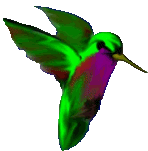Second draft of visual metaphors for Solar Energy Field Guide
Assignment: Create sketches using metaphor or metonymy for your Field Guide topic.
This could be at the top level, for your sections, and/or for your entries. What is the entire visual system? What is your topic analogous to, at a meta-level? What are the parts like?
I created a draft of my field guide last week, and this week I feel that I need to backtrack in order to come back to it again and emphasize the angle I want to get across better for the final version. I also printed out the version I made last week to see how much I need to improve and customize the illustrations. I may still go with a similar design to the placeholders I used, if that will fly, just with my own illustrations modeled on them. I liked the idea from our readings (“How to See Infrastructure: A Guide for Seven Billion Primates”) of unveiling an underlying infrastructure that is the obvious but hidden transmitter such as in Allan Sekula’s work, where he bring us back to the basic fact that many of the things we use are still transported by ship, one of the oldest methods of getting things from point A to point B.
The metaphor I would like instill in the reader (inspired through talking to Erin, my brainstorming partner in class) is that of the sun gazer — not the new-age kind, but the metaphorical kind, and also the actual kind. We literally would not be alive without the sun; plants grow from it, including the food we (and sometimes, the animals we eat) eat, and we as humans also need the sun to feel regulated and happy and to heal our physical bodies / systems, with vitamin D and also possibly through the healing properties of different wavelengths of light it carries (Ok, maybe I can’t back this last part up entirely with a lot of scientific evidence, but this is what I am exploring in my thesis partially, and maybe it could be seen as new-age: or just science, someday?). If we lived in the dark 100% of the time, I can’t imagine what life we would have. Would we use grow lights to grow our food indoors in controlled environments? We would have had to know the sun at one point to try to replicate it, right? Actually, we just would not exist, as Earth would not be hospitable to us evolving in the first place.
But I digress.
The idea is that the sun is our largest source of free energy, an unlimited, vast supply of energy that we MUST figure out how to tap into. The current methods we have may not be perfect, but if we focus on the sun as the only option for us, we can get there. Implementing mirrors, collecting through directly heating water with it, storing it as a backup supply and as batteries, etc. Planting trees and having gardens to keep houses and streets cool, growing your own food to avoid needing to refrigerate so much food during growing seasons (I got this from the Saul Griffith talk.) I am still uneducated for sure on the many, many limitations and setbacks that are currently at play in the solar energy tech field, but I am doing some private research through acquaintances who have been working with solar tech to find those out, and somehow still address those in the field guide, even if just to acknowledge them cursorily and not sugarcoat the whole notion. I’m thinking of some kind of tongue-in-cheek title like “How To Stop Worrying and Love The Sun” (vs How I Stopped Worrying…) or something like this that ties this idea directly to the relationship between the human and the sun. Ancient cultures worshiped the sun: Why can’t we? Perhaps they were on to something.
Also: I was thinking for the “interactive” part of the zine that it could work to insert some kind of card with an image or illustration on it pertaining to this idea that you would then do something with — plantable paper, to remind of how the sun makes things have life? Then do I have to use non-toxic inks? Or a postcard you can send somewhere to request more research into solar energy, or to a representative who has control over such things? Or, Erin’s suggestion was to have the reade send it back to me (or maybe just e-mail me from an address printed on it) then I would send them some links of further research I’ve found in a newsletter, or links to people working in this field to check out? I’m not sure what would work best for this, but something along those lines…


